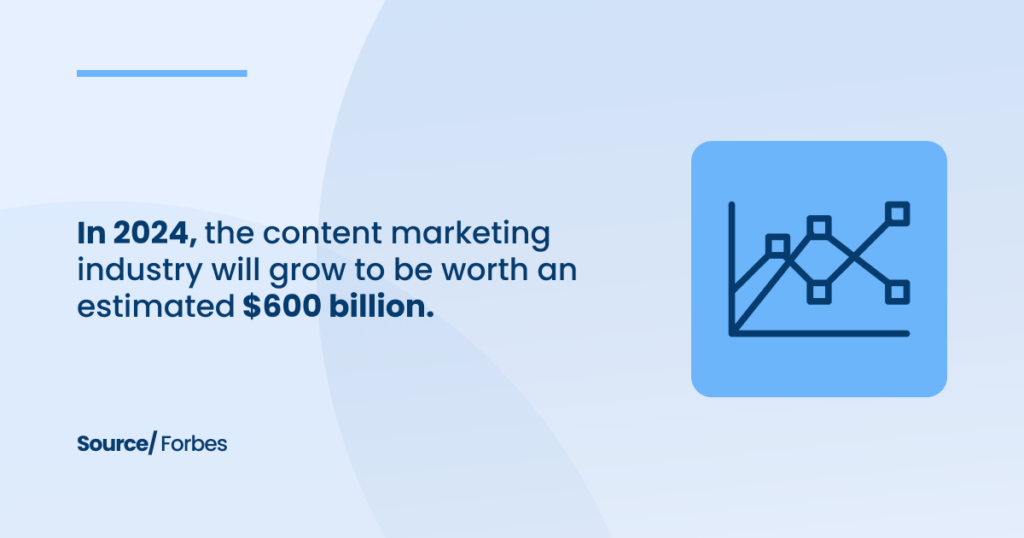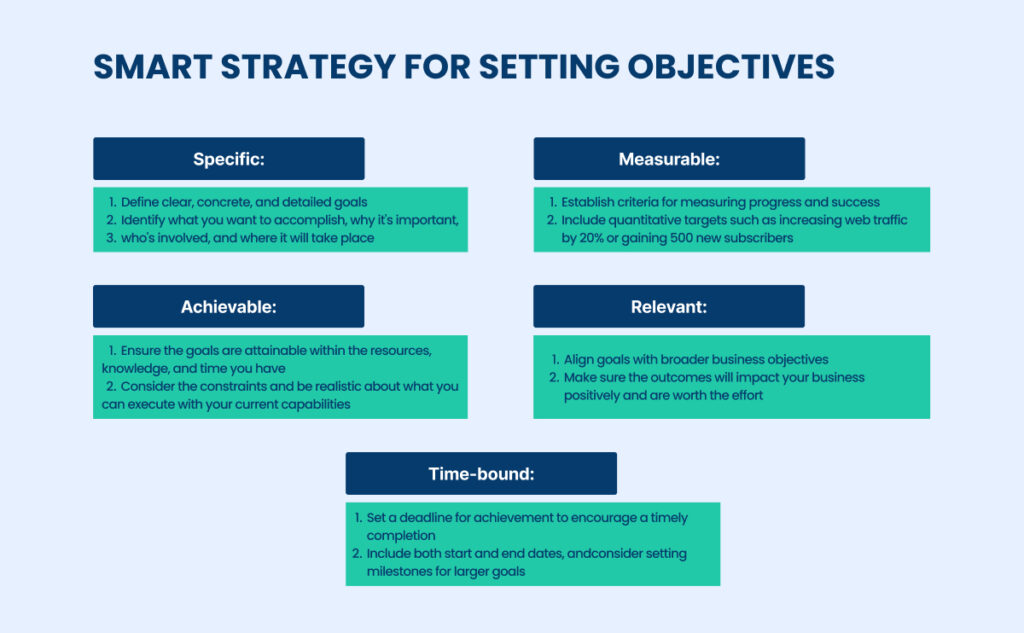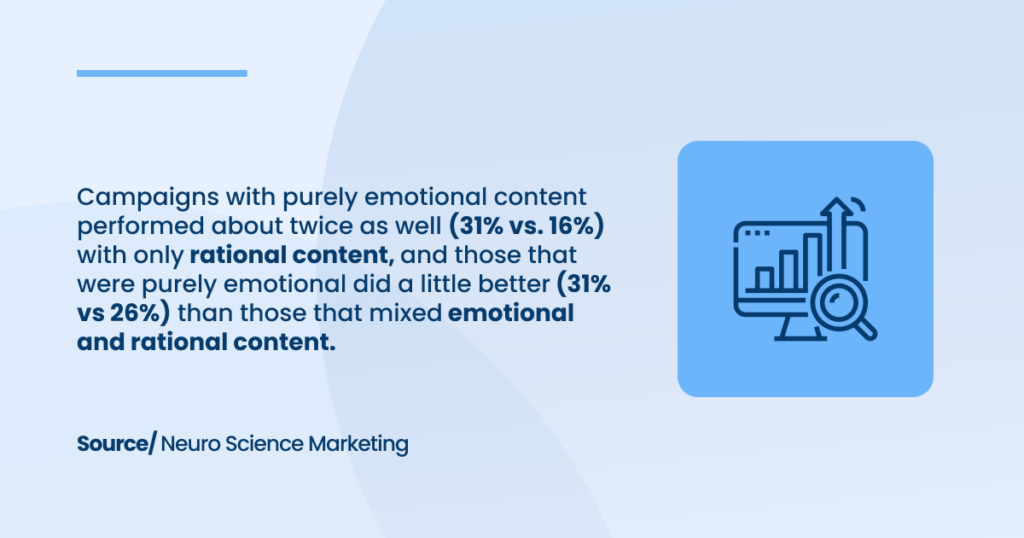Traditional advertising is often met with indifference or even annoyance.
Consumers are bombarded with messages from brands striving for their attention.
Businesses increasingly turn to branded content marketing to cut through the noise and build meaningful connections.
Unlike traditional advertising, branded content doesn’t overtly promote products or services.
Instead, it focuses on storytelling, providing insights, and solving real-world problems.
Reflecting its effectiveness, 90% of marketers include content in their marketing strategies․

Businesses across sectors increasingly invest in content marketing, recognizing its power to connect with audiences, enhance brand recognition, and boost sales.
This growing trend highlights content marketing’s integral position in digital marketing strategies and its key influence on the global marketing landscape.
As a result, many companies are turning to an expert content marketing agency to navigate this shift and expertly maximize their digital presence.
The blog post will cover the importance of branded content marketing and how to create stories that resonate with your audience.
What is Branded Content Marketing?
Branded content marketing is about crafting content that blends marketing materials with entertainment or educational value to engage the audience more subtly and effectively.
Unlike standard advertisements, branded content does not interrupt the audience’s experience but adds value, making the brand integral to the storyline or message.
A study by Advertiser Perceptions revealed that 31% of brands employ the Branded Content method to boost product consideration, while 29% utilize it to enhance sales.
Source: Advertiser Perceptions
Planning Your Branded Content Strategy
Developing an effective branded content marketing strategy necessitates meticulous planning and a profound comprehension of what is branded content marketing, your brand’s identity, and your audience’s needs
Identifying Your Audience
- Identify Your Audience: Begin planning your branded content strategy by determining who your target audience is.
- Importance of Audience Research and Segmentation: These steps are essential to ensure the content created resonates well with the intended demographic.
- Data Collection: Use surveys, social media analytics, and website traffic analysis to gather detailed information about your customers, their interests, and their behaviors.
- Insights from Data: Analyze the collected data to understand customer preferences and what factors influence their purchasing decisions.
- Audience Segmentation: Segment your audience based on demographics, psychographics, behavior patterns, and purchasing history to create focused and effective marketing strategies.
- Tailoring Content: Customize branded content marketing to meet each audience segment’s specific needs and preferences.
- Engagement Strategies: To enhance engagement and make the experience more dynamic, consider employing interactive content marketing and content gamification for segments such as younger audiences.
Setting Objectives and Goals
Once you know who your audience is, the next step is to set clear objectives and goals for your branded content marketing efforts.

The Art of Storytelling in Branded Content
If people love a brand story, 55% are more likely to buy the product in future, 44% will share the story, and 15% will buy the product immediately.
Storytelling is a powerful tool in branded content marketing, captivating audiences and fostering a deep, emotional connection with the brand.
Elements of a Compelling Story
A compelling story in branded content must consist of several core elements that work together to engage the audience and convey the brand’s values and message effectively.
Characters: The characters in your brand story should be relatable and authentic, reflecting the demographics or psychographics of your target audience. This could be a representation of an ideal customer, a relatable employee, or even the brand itself personified.
Conflict: Every good story needs a conflict or a challenge that the characters must overcome. In branded content marketing, this conflict often revolves around a problem that your brand’s product or service can solve, thus positioning your brand as the hero.
Resolution: The resolution provides a satisfying conclusion to the story, showcasing how the brand effectively resolves the conflict. This not only demonstrates the brand’s value but also reinforces the brand’s message in a memorable way.
Takeaway: The key message or moral of the story should align with the brand’s values and leave the audience with a clear understanding of the brand’s identity and the benefits of engaging with it. This takeaway should inspire, motivate, or provoke thought, ensuring the story sticks with the audience long after they’ve encountered it.
Using Emotional Appeal to Engage Viewers
Emotional appeal is crucial in branded content as it helps to make the brand more human and relatable, enhancing audience connection and loyalty.

Techniques for Creating Emotional Connections
Content Curation and Repurposing
Content Curation that resonates emotionally and content repurposing successful emotional content across different platforms, brands can maximize the impact of their stories.
This includes using user-generated content and social media insights to understand what emotionally engages the audience.
Augmented Reality Content
Implementing augmented reality content strategies (ARS) adds an immersive layer to storytelling, allowing consumers to experience the brand story in a more interactive and engaging way.
Source: Exploding Topics
This technology can bring emotional elements to life, making the user experience even more impactful.
Tools Content Marketing
Utilizing Tools for content marketing like emotional analytics and sentiment analysis can help brands tailor their content to evoke specific emotional responses.
These tools analyze how audiences react to different content types and themes, enabling brands to fine-tune their messaging for maximum emotional impact.
Brand Voice and Brand Identity
Consistent brand voice and strong brand identity are crucial for creating emotional connections. These should reflect the brand’s values and resonate on a personal level with the target audience.
Whether it’s through humor, inspiration, or empathy, the voice should be distinct and familiar to the audience.
Social Media Channels
Leverage social media channels to amplify emotional stories, as these platforms are ideal for spreading and sharing emotional content.
Source: Data Report
Social media also provides an opportunity to engage directly with the audience, listen to their stories, and respond in a way that aligns with the brand story and values.
User-Generated Content
Encouraging user-generated content is a powerful way to build emotional connections. Seeing real stories from other users enhances credibility and trust, and helps new audiences form emotional bonds with the brand.
Source: Linearity
Through the strategic use of storytelling elements and emotional appeal techniques, brands can create compelling branded content that not only entertains and informs but also deeply resonates with the audience.
Creating and Distributing Branded Content
The creation and distribution of branded content are pivotal steps in branded content marketing.
This process involves not only crafting content that embodies the brand’s narrative and values but also strategically disseminating it to reach and resonate with the right audience.
Choosing the Right Format and Medium
Selecting the appropriate format and medium for your branded content is essential for engaging effectively with your audience.
Each format offers unique advantages and can be used to convey your brand’s story in different ways:
Videos
One of the most engaging content formats, videos are particularly effective for storytelling. They allow for a rich, visual and auditory depiction of the brand’s narrative, making complex information more accessible and emotionally impactful.
Source: Wyzowl
Videos are versatile for use across various platforms, from social media to your own website.
Articles
Articles and blog posts offer a more detailed exploration of topics, allowing brands to establish authority and depth in their subject matter. This format is ideal for delivering educational content, sharing insights, and reinforcing brand values.
Podcasts
Rising in popularity, podcasts offer a personal way to connect with audiences, often creating a feeling of one-on-one communication.
Source: Podcasts Get The Most Actual Engagement Online, Artios
They are perfect for sharing longer discussions, interviews, and stories that reinforce the brand’s identity and values.
Infographics and Visual Content
These are great for simplifying data-driven content and making it more digestible. Infographics are highly shareable and useful for platforms like Pinterest and LinkedIn.
The choice of format should align with the brand’s overall marketing strategy, the nature of the content, and where the target audience is most likely to engage with it.
Content Creation Tips
Creating effective branded content involves more than just assembling text or visuals.
Stay True to Your Brand’s Voice: Ensure that every piece of content reflects your brand’s unique voice and personality. This consistency is key to building trust and enhancing brand perception.
Focus on Quality Over Quantity: High-quality, well-researched content that adds value to your audience will always trump a higher quantity of lesser-quality pieces. Invest in strong writing, professional visuals, and quality production to make your content stand out.
Tell Your Own Story: Authenticity resonates with audiences. Create content that shares your brand’s own stories, experiences, and lessons learned. This not only enhances brand perception but also deepens the audience’s emotional connection to the brand.
Leverage User-Generated Content: Incorporating content created by your audience can increase engagement and trust. It also provides a fresh perspective on your brand’s impact on real people.
Distribution Strategies
Once your content is created, the next step is effective distribution to ensure it reaches and engages your intended audience.
- Utilize Multi-Channel Distribution: Don’t limit your content to a single platform. Distribute your content across multiple channels where your audience is present, from social media to email newsletters, to increase reach and impact.
- Optimize for Search Engines: SEO is crucial for articles and written content. Optimize your content with relevant keywords, meta descriptions, and tags to ensure it’s discoverable by your target audience.
- Employ Social Media Strategically: Tailor your content for each social media platform to maximize engagement. Use insights from social media analytics to understand what types of content perform best on each platform.
- Consider Paid Promotion: To boost reach, especially for key pieces of content or major campaigns, consider using paid promotion. Targeted ads on social media and search engines can significantly increase visibility.
- Measure and Adapt: Continuously monitor the performance of your content across different platforms. Use data and analytics to understand what works and what doesn’t, and adapt your strategy accordingly.
Creating and distributing branded content effectively requires a strategic approach tailored to your brand’s values and the preferences of your target audience.
By choosing the right formats, focusing on high-quality creation, and employing smart distribution tactics, you can enhance your brand’s perception and deepen your connection with customers.
Measuring the Success of Branded Content
Evaluating the effectiveness of your branded content marketing is critical to understanding its impact and optimizing future content strategies.
Measuring success involves setting specific Key Performance Indicators (KPIs) that align with the objectives of your branded content initiatives.
Key Performance Indicators (KPIs)
To effectively measure the success of branded content, it is essential to select KPIs that reflect the goals and strategies of your content marketing efforts.
Source: Adoption rate of selected key performance indicators (KPIs), Statista
These metrics should provide insight into how well your content resonates with your target audience and drives them toward your desired action.
1. Engagement Metrics: Engagement is a direct indicator of how compelling and relevant your content is to the audience. Metrics under this category include:
- Likes, Shares, Comments: These social interactions provide immediate feedback on how your audience perceives your content.
- Page Views and Average Time on Page: High numbers here suggest that your content is attracting attention and keeping readers interested.
- Click-through Rates (CTR): In email campaigns or on ads, CTR helps gauge how effectively your content prompts action.
2. Conversion Metrics: Ultimately, one of the main objectives of understanding what is branded content marketing is to transform audience interest into tangible actions that benefit the brand. Key conversion metrics include:
- Lead Generation: The number of new leads or potential customers acquired through the content.
- Conversion Rate: The percentage of users who take a desired action (like filling out a form, signing up for a newsletter, or making a purchase) relative to total viewers or participants.
- Sales Metrics: Direct sales or revenue generated from content-driven campaigns can be the ultimate measure of content effectiveness.
3. Brand Perception Metrics: Since branded content is often designed to influence the perception of a brand, measuring changes in brand awareness and perception before and after a content campaign can provide valuable insights.
- Brand Awareness Surveys: Conduct surveys to assess changes in brand recognition and recall.
- Sentiment Analysis: Use social media listening tools to analyze the sentiment of the conversation around your brand before and after the campaign.
4. Audience Growth Metrics: Another sign of successful branded content is the growth of your audience base, which can be measured through:
- Subscriber Growth: Increases in the number of subscribers to your newsletters, blogs, or video channels.
- Social Media Follower Growth: An increase in followers on platforms where content is shared indicates expanding reach and audience interest.
5. SEO Performance: For content primarily distributed online, SEO performance can reflect the effectiveness of your content in driving organic traffic.
- Search Engine Rankings: Improvement in rankings for targeted keywords can indicate successful SEO.
- Backlinks: The number and quality of backlinks to your content from reputable sites can enhance your site’s authority and direct more traffic.
6. Content Lifespan and Sustainability: Understanding how long your content remains relevant and continues to attract viewers can help you gauge its lasting impact.
- Evergreen Score: Assess how well your content performs over an extended period, indicating its long-term value to your audience.
By systematically tracking these KPIs, you can gain a clear understanding of what aspects of your branded content marketing are working well and which areas might need adjustment.
This continuous loop of creation, distribution, measurement, and optimization is crucial to refining your approach and achieving sustained success in branded content marketing.
This process also ensures that every piece of content you create continues to embody a strong brand story and effectively conveys your brand’s values, enhancing your overall marketing strategy.
Partner with [A] Growth Agency For Mastering Your Content Marketing and the Strategies
Content marketing isn’t just about creating content. It’s about crafting a narrative that resonates with your audience on a deep level.
[A] Growth Agency will help you build long-lasting relationships and foster trust for sustained business development.
Excellence is our standard. We cultivate a team of ‘A players’ – top-tier talents who bring passion and expertise to every challenge.
Moreover, Growth isn’t just what we offer. It’s who we are.
Don’t wait longer.

